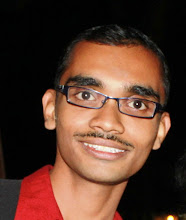Sunday December 19, 2010
Support and train our docs
Thank you for highlighting the issues in healthcare and the training of doctors in the country (“Cleaning House”, Dec 12). As an anaesthetic registrar working in the United Kingdom, I am delighted to see an increase in the number of graduating doctors in Malaysia.In line with the Government’s push to increase the number of doctors in the country, this situation would and should have been expected.
We must keep in mind that new doctors do not magically appear fully-trained and experienced. They require training and supervision, just like any other profession.
As such, it does not take a rocket scientist to work out that trainee numbers will go up in the coming years. Instead of making stopgap measures now, the Health Ministry should have realised this when they allowed the approval of new medical schools in the country, and put measures in place to accomodate these new doctors coming through the system.
I applaud steps to increase the number of training hospitals, and it is actually an excellent training ground for housemen especially in the smaller district hospitals.
The ratio as reported by Dr S. Jeyaindran of one house officer to four patients is arbitrary at best. I have never seen or heard of a ward of 20 patients where there are five housemen around.
One should also note that the workload of doctors vary greatly between specialities, especially on the ward. On acute medical wards, there is a higher proportion of acutely ill patients, and a high turnover (patients coming in and being discharged). These wards need more doctors on the floor.
On the other hand, an elective surgical ward would have a lower patient turnover.
It would actually be better for patient safety when housemen have less patients to look after.
If there are so many housemen, perhaps a reduction in the working hours would be welcomed as well, especially out of hours. This is to ensure young doctors do not burn out and lose interest.
Training doctors is expensive, hence we should look after them better. A proper induction and support programme when they enter service is vital.
In the case of the housemen not recognising a patient in distress, we do not know the full extent of the details, thus it is unfair for us to pass judgement. Patients can deteriorate rapidly, therefore in the wards in the UK we have alert scoring systems which chart their vital signs, and nurses are supposed to inform the doctors if certain scores are triggered.
The lack of knowledge in resuscitation is deplorable, and it is vital for hospitals to ensure staff are trained in resuscitation.
We need more doctors to look after an increasing and ageing population. Let us train and nurture these doctors. We will need them in the years to come.


Tidak ada komentar:
Posting Komentar